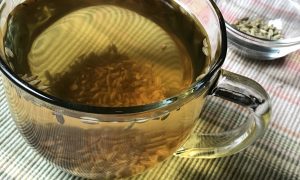Most of the time we don’t get signs of kidney stones on examination. It’s the history, urine examination and imaging that tells us about the kidney stone. Here are signs of kidney stones to watch out for along with prevention and treatment tips
A kidney stone is formed when the levels of dissolved minerals and salts increases in one’s body and as per reports, kidney stones are a very common health problem with 11% incidence in men and 9% in women. Kidney stones can start small but can grow larger in size, even filling the inner hollow structures of the kidney.
Some kidney stones easily can be passed out of the body through urine but if the stone becomes lodged in the ureter, it blocks the urine flow from that kidney and causes discomfort and pain. Majority of times it is neglected and patients can present with various complications.
Read More: Navratri 2023: How To Treat Constipation During 9-Days Of Fasting? Expert Shares Natural Remedies
In an interview with HT lifestyle, Dr Manjunath S, Consultant Nephrologist and Renal Transplant Physician at SPARSH Hospital, explained, “Kidney stones means Crystallopathy. Urine is like a solution containing water as a solvent and solute (minerals, ions and nitrogenous waste products). When the content of minerals and ions are more, it automatically starts precipitating which leads to the crystal formation. When the crystals increase and the solvent is less, the urine becomes supersaturated leading to crystallization and stones in the urinary tract.”
According to him, kidney stones can be classified in terms of the location –
- Renal stones or nephrolithiasis
- Ureter stones or ureterolithiasis
- Bladder stones or Cystolithiasis
He said, “Depending on the chemical composition: most common is the calcium oxalate stones, 80-90% of the kidney stones. 10 to 20% are Calcium phosphate, Struvite Stones ,Uric acid and Cystine stones. There are a combination of environmental factors as well as genetic factors for stones.”
He highlighted some causes as –
- Less water intake: Since the urine is a solution, when fluid intake is less the solvent part will be less and predispose to stone formation
- Working in hot environment especially manual labourers working in summer
- Strenuous exercises with dehydration can also predispose an individual to the formation of kidney stones
- Urine infection due to a bacteria called proteus mirabilis can cause struvite stones
- Obesity, Diabetes, cardiovascular diseases and sedentary lifestyle are the other high risk factors
- High consumption of red meat
- High salt intake
- Gout: associated with uric stones.
- Gut disorders like short bowel syndrome, bariatric surgery, Crohn’s disease and other malabsorption disorders.
- Antibiotic exposure disrupting gut microbiome.
- Intake of certain drugs causing direct crystallization or alterations in urinary pH.
He listed the genetic causes as –
- Hyperoxaluria: metabolic disorder seen in young adults and children, caused by an enzyme deficiency called Alanine Glyoxylate Aminotransferase.
- Cystinuria: Buildup of Amino acid cystine crystals in urine
- Medullary sponge kidney
- Anatomic genitourinary abnormalities
Read More: World Tuberculosis Day 2023: What is Abdominal TB? Causes, Symptoms, Diagnosis and Treatment
Signs to watch out for:
Dr Moin Mohammed Bhavikatti, Senior Consultant, Department of Urology and Transplant at Belenus Champion Hospital, said that the following symptoms and signs should be observed by individuals that will signify presence of kidney stones –
1.Pain in right or left abdomen (loin) radiating downward
2.Difficulty in passing urine/poor stream
3.Fever and chills
4.Blood in Urine
5.Burning while passing urine/ bad odor of urine
He insisted that if an individual is feeling the following symptoms, they should seek an immediate appointment with a urologist. Bringing his expertise to the same, Dr Manjunath S elaborated –
- PAIN:
Usually, when the stones are in the kidney, it will be a vague pain in the back. When it migrates through the ureter (the urinary tube connecting the kidney and the ureter), it will have a excruciating spasmodic pain which is called the acute Ureteric colic or renal colic, typically described as the loin to groin pain i.e. pain starts in the back and radiate to inner part of the thigh. The pain is intermittent and contracting pain.
2. Hematuria:
In urine analysis red blood cells can be detected. Also leucocytes, bacteria, urinary cysts, and crystals like calcium oxalate, struvite, cystine and uric acid crystals can be detected in the urine microscopic examination.
As per the health expert, the patient will have other symptoms like –
- Blood in the urine, difficulty in passing urine, or burning micturation
- When the stones are in the bladder, they will have more frequent urge to pass urine as well as unable to hold urine, this is called increased frequency and urgency
- Incomplete emptying of the bladder because of the irritation by the stone
- Feeling fatigued and tired
- Nausea and vomiting when there is an obstruction in the urinary tract.
- Other symptoms like fever which indicate infection and sepsis.
Prevention and treatment
Dr Manjunath S recommended –
- Increase the water intake: Patients have to maintain urine output of around two liters. That means water intake should be around 2.5 -3 liters. There should be a balance between solvent and solute to prevent the stone formation.
- Hot climates: If patients are exposed to hot climates or are doing strenuous work, they have to increase their water intake. First and foremost, water is key for the prevention of stone.
- Dietary measures: Depending on the type of stones, there are few dietary factors we have to take care of, like decreasing salt intake, decreasing animal protein intake and maintaining a good dietary calcium.
- Avoid supplements: Calcium supplement is also linked with calcium stone formation. Basically, calcium consumed in two types.1) dietary calcium is normal i.e intake of calcium in your diet is normal, it binds to oxalates in gastrointestinal tract and prevent excess oxalate absorption and oxalate stone formation. 2) if you take calcium supplement it is going to concentrate in the urine and form stones, it’s a double edge.
- At the same time, avoid excess vitamin C supplements, spinach, rhubarb, potato chips and Beets (which are rich in oxalate) to prevent oxalate stone formation .
- Infections: If there is any infection, it has to be taken care of so that we can prevent the stone formation as well as infection related complications
- Avoid obesity and control diabetes and cardiovascular risk factors. These diseases have been known to be associated with recurrent stone formation.
- Pharmacological treatment: If the patient is having oxalate calcium stones, we have to use thiazide diuretics,alkalis to prevent recurrence.
- For uric acid stones, we use the drugs called, allopurinol as well as febuxostat to prevent the uric acid stones.
- Medications: Based on the metabolic evaluation, specific measures can be suggested
- Water intake and dietary measures can help in the prevention of most of the stones.
- Urological interventions like Extracorporeal shock wave lithotripsy, Retrograde intrarenal endoscopic surgery, Ureteroscopy with stone basketing and DJ Stenting , Percutaneous Nephrolithotomy are done depending on the location and obstructions in the urinary system.
Dr Manjunath S concluded, “Of late, the stones we are seeing are with more vitamin D and calcium supplementation. A lot of patients come with vitamin D deficiency which is very common in the urban population since they do not get adequately exposed to sun light. At the same time, overzealously taking the vitamin D as well as calcium will lead to hypercalciuria and calcium stones. In diabetic and geriatric population recurrent stones and obstruction with infections are common. Earlier, kidney stones were taken as an isolated condition and unrelated to the other issues. Now, researchers have found the relation between stones, diabetes, metabolic syndrome, obesity, and even cardiovascular risk factors. Cardiovascular diseases are more common in stone formers. So, in any stone formation, we have to broaden our thinking and keep an eye and take preventive measures so that they don’t develop other diseases.”

































